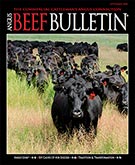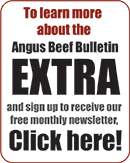ELD Implementation Delayed
Cattle groups praise Congress for language delaying ELD implementation, gives more flexibility for livestock transportation.
The U.S. House Appropriations Subcommittee on Transportation, Housing and Urban Development appropriations bill passed in mid-July will delay for one year a requirement mandating the use of the new electronic logging devices (ELDs) for livestock and insect haulers. The full committee could mark up the legislation as soon as the third week of July.
“For over a year, we have been working to address the need for greater flexibility for our livestock haulers within the ELD mandate,” U.S. Cattlemen’s Association (USCA) Transportation Committee Chairman Steve Hilker stated. “The language proposed by Congressman Valadao provides an additional year for our industry to work with the Federal Motor Carrier Safety Administration (FMCSA) to find acceptable solutions to the restrictive hours-of-service (HOS) rules for livestock haulers. We hope to implement these solutions to HOS rules before the one-year delay expires.”
“A one-year delay will give us time to address our industry-specific concerns, and give us more time to work with federal regulators to add needed flexibility, as hauling livestock has many challenges and variables,” added fifth-generation California rancher and National Cattlemen's Beef Association (NCBA) President-elect Kevin Kester.
In May 2016, Joe Goggins testified on behalf of USCA at the Senate Agriculture Committee hearing on “A Review of the U.S. Livestock and Poultry Sectors: Marketplace Opportunities and Challenges.”
In his testimony, Goggins stated: “Livestock are a highly perishable commodity. If we hamper the ability to move livestock quickly and efficiently, we might actually limit opportunities for producers in many parts of this country by reducing the number of people interested in buying their livestock.”
NCBA has relayed the message to FMCSA for the past year that their rule limiting driving time to 11 hours within a 14-hour window after the driver comes on duty is simply too restrictive on the industry.
“We hope that our continued work with FMCSA will allow them to understand the needs of our industry: balancing the welfare of livestock, the safety of our highly skilled drivers, and the need to get our animals moved in the safest and most efficient way possible for the driver, others on the road and the animals,” Kester said.
USCA pulled together a working group with industry representatives to draft the language that was included in the mid-July version of the bill. USCA also hosted a panel discussion with the Livestock Marketing Association and the American Cattle Transporters Advisory Group at the 2016 Cattle Producer’s Forum to further discuss greater flexibility for livestock haulers within the upcoming ELD mandate.
The USCA Transportation Committee, composed of livestock haulers from all across the United States, traveled to Washington, D.C., this June to present their proposal to support the one-year delay and for amended HOS to FMCSA, Senate and House members. The language included in the fiscal year 2018 Appropriations Bill is a direct result of their visit to Capitol Hill.
Both USCA and NCBA look forward to continuing the dialogue with FMCSA and Congress to ensure the welfare of the domestic cattle herd and delay the implementation of ELDs for livestock haulers.
Editor’s Note: This article is compiled from releases from USCA and NCBA.







